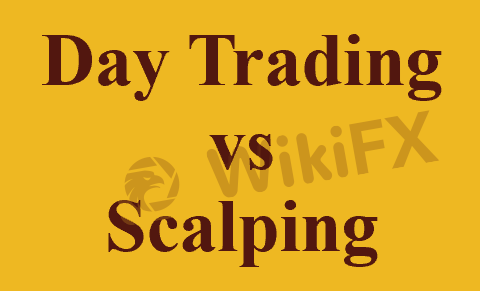Spread betting is the practice of betting on the direction of a financial market without actually owning the underlying security. It entails placing a bet on the movement of a security's value. Investors place bets on whether the price of the underlying securities will fall below the bid price or rise above the ask price (also known as the spread) provided by a spread betting operator.
Investors can speculate on the price movement of a wide range of financial assets, such as stocks, currency, commodities, and fixed-income securities, through the use of spread betting. An investor's bet is on whether the market will rise or fall if their bet is accepted, in other words. Additionally, consumers are able to decide how much money they want to put at stake.
Ignoring it as a factor in spread betting's appeal would be naive, as the promise of enormous returns is an important part of spread betting's allure. Traders who wager £1 per point can expect to make 10 or even 100 times their initial investment if the market moves in their favor if their bets increase in value with every point gained. While other investment techniques have their own specific advantages, no stock or future contract can ever offer these types of returns in such a short time.
Given that spread betting is such a popular trading instrument, we've put together this list of the best forex brokers for spread betting just for your benefit and information.
Top 10 Best Forex Brokers for Spread Betting
Regulated by top-tier authorities (FCA) for secure trading environments.
Offers an extensive range of trading assets, including cryptocurrencies and commodities.
3. Regulated by top-tier authorities globally, ensuring client security.
Offering a comprehensive spread-betting platform for tax-efficient trading.
Pepperstone provides ultra-low spreads, beginning at 0.0 pips.
Diverse asset selection, including cryptocurrencies, at Pepperstone.
"No Dealing Desk" execution for transparent forex trading.
Providing a wide range of educational resources for traders' skill development.
Competitive ECN pricing for tight spreads.
MetaTrader 4 and MetaTrader 5 trading platforms for smooth trading.
more
Comparison of the Best Forex Brokers for Spread Betting
Forex Broker
License
Minimum Spread
Maximum Leverage
Minimum Deposit
Open account
Details
Compare
Best Forex Brokers for Spread Betting
Forex Trading Knowledge Questions and Answers
How does spread betting work?
As opposed to the actual purchasing and selling of assets, spread betting makes use of bets. If you were to buy Apple stock, for example, you would hold it for a while before selling it. In spread betting, you might get the same result by betting on an increase in the price of Apple's stock.
The more profit you make, the more Apple advances in your preferred direction. The more it goes against you, the higher your losses will be.
The buy price and the sale price are given when you open a spread bet. It's up to you whether you want to go long or short by using this tool. For those who believe that their chosen market would rise, they click purchase. Sell if you think it's going to decline.
After closing the spread bet, you trade the other way around. In other words, if you bought at the beginning, you'd sell when you exited.

What to Look for When Evaluating a Spread Betting Broker?
Prioritize brokers regulated by reputable authorities to mitigate risks and ensure fair practices. Regulated brokers maintain a strong reputation and adhere to industry rules.
Trading Costs:Differences in spread can significantly impact your trading costs over time. Choose a low-cost broker to enhance profitability, especially for high-volume trading.
Asset Selection:Evaluate the variety of tradable assets offered by the broker. More choices provide greater diversification opportunities and flexibility for your trading strategy.
Account Types:Consider the broker's account tiers, as higher tiers may offer improved trading conditions. Assess the benefits and whether they align with your trading needs.
Trading Platforms:Opt for brokers with user-friendly, proprietary trading platforms. Look for essential features like technical indicators, economic calendars, and algorithmic trading support.
How much do I need to start spread betting?
Spread betting does not impose a minimum deposit requirement for participation. The barriers to entry typically depend on your provider.
Determine how much money you're willing to put at risk before you begin trading.
A minimum deposit of £100 is required, or whatever amount is sufficient to meet the margin requirements of your first trade. Additionally, it is prudent to maintain sufficient equity in your account to withstand any big moves against your investment.

When is spread betting profitable?
As with most market trading concerns, spread betting can sometimes be hard to predict. That‘s largely where the idea of ’betting‘ comes into play. You’re taking a chance.
Spread betting, like most market trading issues, can be difficult to foresee at times. When it comes to gambling, this is where the term 'betting' comes in. You're putting yourself at risk.
However, many professionals in the field of spread betting will likely tell you that you need to prepare for the long term to get the best results. Choosing a broker and approaching betting as if you were running your own business means exercising extreme caution.
If you're prepared to put in the time and effort, spread betting can be lucrative. But much like betting on football or horse racing, doing some research on a runner's form and 'running' history can also pay dividends.
Because of this, you can only expect to profit from spread betting if you plan well in advance. A little risk-taking here and there can be a good strategy, but when the stakes are high, caution is necessary.
What are the differences between spot forex and spread betting?
Spread betting is a product or practice that gives traders access to the financial markets so they can speculate on price movements, whereas forex trading is the market itself. Spot forex requires investors to purchase and sell currency pairs at the current market spot price, whereas spread betting allows traders to speculate on the price movements of the underlying asset without owning ownership.
As ownership is typically involved, many independent spot forex brokers impose taxes on earnings. Forex spread betting does not involve a physical purchase, thus traders do not need to pay stamp duty or capital gains tax with a forex spread betting account. In addition to the use of leverage, this is the key distinction between spread betting and FX trading. In addition, no commission is charged while spread betting currency.
Is spread betting gambling?
Spread betting can be used for leveraged speculation, but it can also be utilized to hedge existing positions or make informed direction trades. Consequently, many participants favor the term spread trading. Since no actual stake is taken in the underlying instrument, it may be regarded a kind of gambling from a regulatory and tax perspective in certain jurisdictions.
Is spread betting right for everyone?
Spread betting may be great for investors who wish to increase their potential return on investment. However, it involves substantial capital risks and is not suitable for everyone. We recommend trading on a demo account prior to attempting spread betting on live markets.
Spread betting is appropriate for individuals who:
To invest in short-term possibilitie
Spread bets are often left open for a few days or weeks, as opposed to longer periods of time.
Some forex brokers provide clients with execution-only services so that they can make their own investment decisions. We will not provide trading advice or trade on your behalf.
In order to diversify their portfolios, some top forex brokers provide over 4,000 spread betting markets, including shares, commodities, foreign exchange, and indices.
To be as active or as inactive as desired
You can trade many times each day or open a small number of spread betting positions each quarter; the choice is yours.
What are the pros and cons of spread betting?
In the same way that spread betting can generate huge returns, it can also be an expensive way to master the complexities of trading. Consider the following benefits and drawbacks of spread betting:
Pros of spread bettingProfits are not taxed. Since spread betting is a form of gambling, profits are not taxed at all. You won't have to include any information about trading on your annual tax return, which is another benefit.
No commissions. The spread bet broker makes his money on the difference between the bid and offer spread, so technically, trading is not free. But if you trade stocks on the London Stock Exchange, you don't have to pay the 0.5% Stamp Duty. Saving 0.5 percent might not seem like much, but if you often trade stocks for the short term, it's a huge amount.
Make smaller trades - The smallest wager size is usually £1 per point, which is helpful for people just getting started because losses can be contained.
Many of the world's largest markets are now open 24 hours a day for business. Although you may not want to trade at 11 p.m., the ability to do so is always desirable.
Spread bets on non-UK markets can be transacted in sterling, thus there is no currency risk or need to convert Sterling into Euros or Dollars, etc.
Cons of spread bettingVolatility
As a result of the dynamic pricing and constant market swings, spread betting is a fast-paced and fast-moving location to trade. As a result, spread betting is riskier than many other types of trading, and this can lead to large losses in a short period of time.
Leverage
Since spread betting is so heavily leveraged, it appears to be a lot more expensive than it is. In order to place a bet with stakes of £1, for example, a trading account with £500 of trading money would be required. These dangers are directly related to Spread Betting and the need to protect oneself from overleveraging and overtrading. You can lose 200 percent, 300 percent, or even 1000 percent in a matter of minutes if you use spread betting's high level of leverage.
Spreads too wide
Companies that provide spread betting may raise their prices when the market is volatile. Stop-loss orders may be triggered, increasing trading costs. Investors should exercise caution when making orders just before the release of earnings reports or other economic data.
You Also Like

Best Forex Brokers with Trading APIs for 2026
Dive into top Forex Brokers with exceptional trading APIs, offering benefits, security, and a variety of platforms.

Best Forex Trading Signal Providers for 2026
Uncover the top Forex signal providers, their benefits, quality selection criteria, and insight into useful Forex trading knowledge.

Best Scalping Forex Brokers for 2026
Examine best scalping Forex brokers, learn their strategies and advantages, and assess their suitability for different traders.

6 Best Brokers for Long-Term Investing in 2026
Explore the top six brokers for long-term investing encompassing their offerings, analysis, and comparative insights.




























